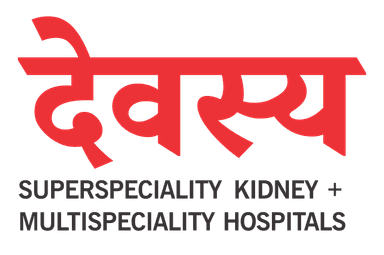Varicose Veins Treatments & Surgery
How Devasya Hospital helps to cure Varicose Veins?
Devasya Hospital is an excellent choice for laser treatment for varicose veins. They are renowned for providing top-quality treatment for varicose veins, ensuring optimal outcomes for patients. With their expertise in the field of vascular disorders, they offer advanced laser treatments specifically tailored to address varicose veins.
Devasya Hospital is committed to patient care, offering personalized treatment plans based on individual needs. They provide a comprehensive evaluation, accurate diagnosis, and customized treatment options to address the specific condition of each patient. The hospital's state-of-the-art facilities and advanced equipment further enhance the quality of care provided.
Patient satisfaction and positive outcomes are priorities at Devasya Hospital. They strive to deliver the best results by employing the latest techniques and adhering to high standards of medical care. By choosing Devasya Hospital for varicose vein treatment, patients can have confidence in receiving exceptional treatment from a trusted healthcare institution.
FAQs
Varicose veins are primarily caused by weakened or damaged valves within the veins. When these valves malfunction, they fail to efficiently regulate blood flow and allow blood to pool in the veins. This pooling causes the veins to become enlarged, twisted, and varicose. Various factors contribute to the development of varicose veins, including genetics, age, gender, pregnancy, obesity, prolonged sitting or standing, and a history of blood clots.
In most cases, a diagnosis of varicose veins can be made based on a physical examination and medical history. However, in certain situations, additional tests may be recommended. These can include a duplex ultrasound, which uses sound waves to visualize the blood flow in the veins and identify any abnormalities. The ultrasound can help determine the location, severity, and extent of the varicose veins, as well as assess the function of the valves.
Common symptoms of varicose veins include enlarged, twisted veins that are visible beneath the skin's surface, often appearing blue or purple. Other symptoms may include aching or heaviness in the legs, swelling or edema in the lower legs and ankles, throbbing or cramping in the legs, itching or a feeling of irritation over the affected veins, and skin discoloration or ulcers in more severe cases.
In the early stages, varicose veins may not cause noticeable symptoms. However, some early signs can include a mild ache or discomfort in the legs, a feeling of heaviness or fatigue in the legs after prolonged standing or sitting, and visible spider veins or small clusters of dilated veins on the skin's surface.
Varicose veins can lead to complications in some cases. These can include the development of superficial blood clots (thrombophlebitis) in the varicose veins, chronic venous insufficiency where the veins fail to efficiently return blood to the heart, skin changes such as dermatitis or eczema, and the formation of venous ulcers, which are open sores that can be slow to heal.
While it may not be possible to completely prevent varicose veins, certain measures can help reduce the risk and minimize symptoms. These include regular exercise to improve circulation, maintaining a healthy weight, avoiding prolonged periods of sitting or standing, elevating the legs whenever possible, wearing compression stockings to promote proper blood flow, and avoiding tight clothing that restricts circulation.



